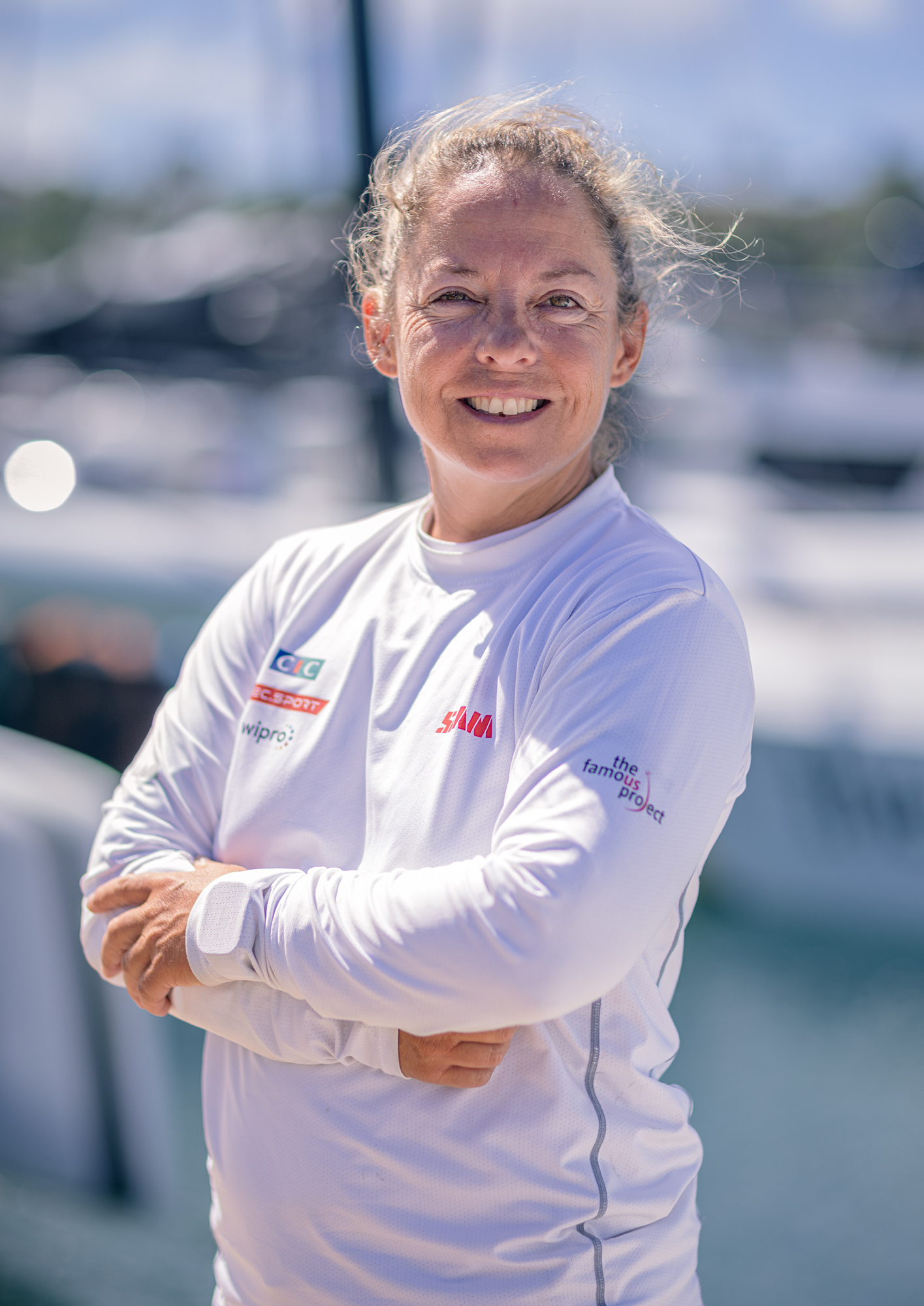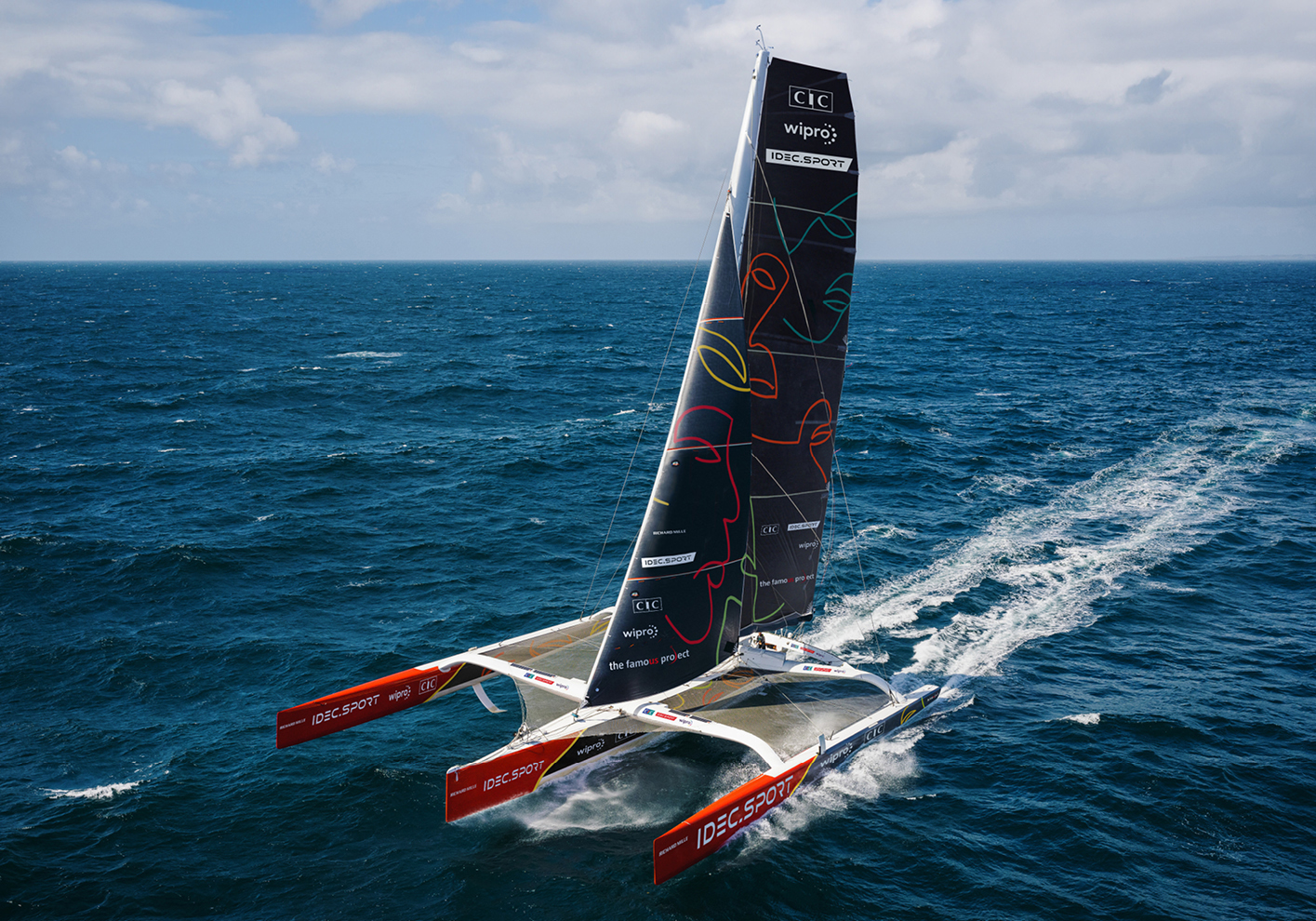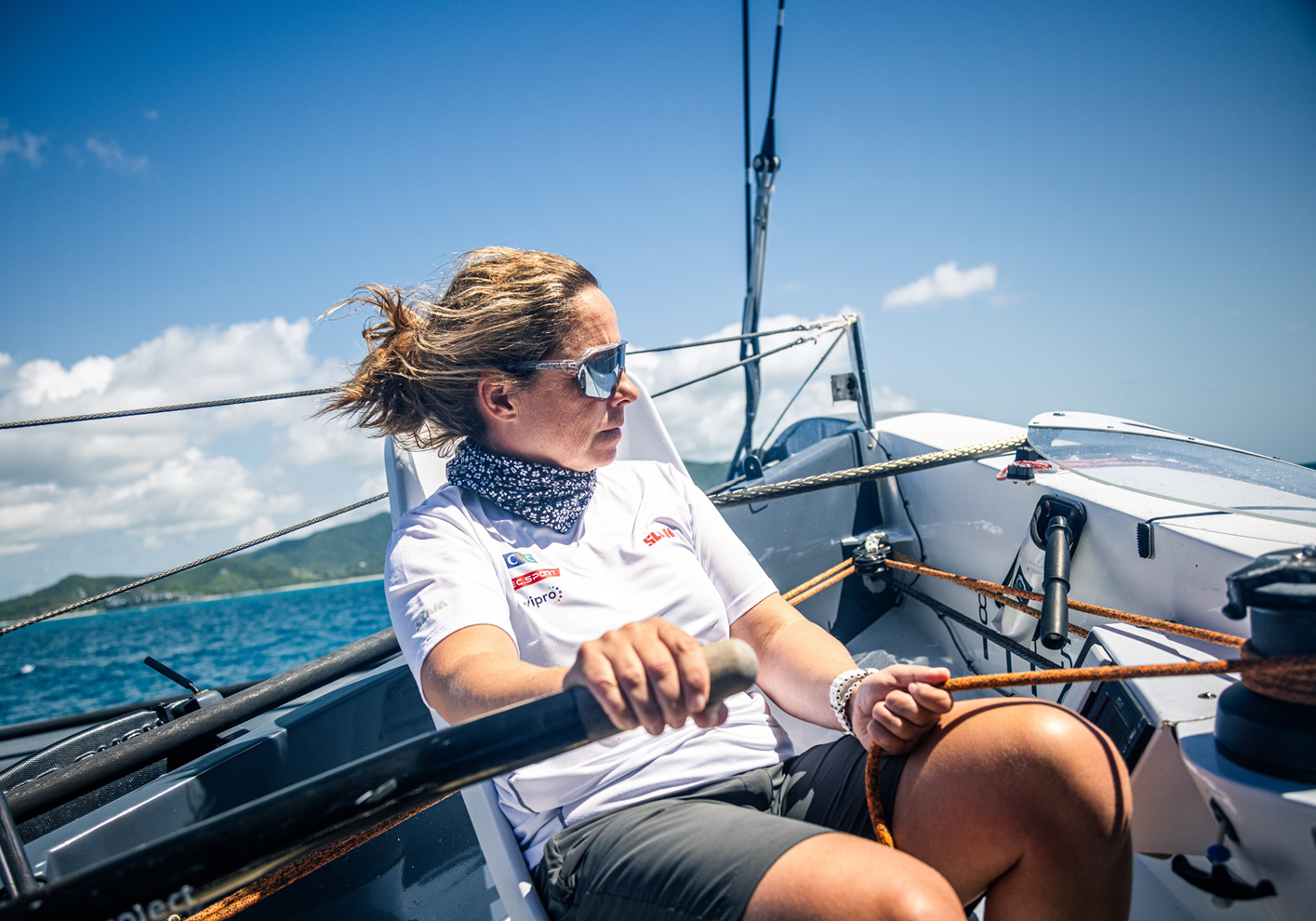WORDS
Imogen Almond
Women have long been excluded from major sailing expeditions due to gender biases within the community. However, Alexia Barrier and her international crew of 10 accomplished female sailors are set to change this by taking on one of the toughest sailing challenges yet. Aboard the world’s fastest maxi-trimaran, the Idec Sport, the team aims to set the first women’s record for the Jules Verne Trophy by sailing around the globe in fewer than 40 days. Titled “The Famous Project”, this challenge is taking place in partnership with luxury watch house, Richard Mille.
This ambitious endeavour has inspired generations of eager adventurers, including Bruno and Loïck Peyron and Olivier de Kersauson, to push the boundaries of circumnavigation and surpass the fictional journey of Phileas Fogg in Jules Verne’s famous novel, Around the World in Eighty Days.
Led by Barrier and handpicked for their diverse and complementary sailing expertise, the team includes record-breaking sailors Dee Caffari and Marie Riou. We caught up with some of the crew prior to the expedition to find out how they are getting on.

What were your initial thoughts when you were presented with the opportunity to tackle the Jules Verne?
Alexia Barrier: ‘The Jules Verne is like walking on the moon. I never thought I’d have this amazing and momentous opportunity.’
Dee Caffari: ‘For me, to go around the world is not new, and to go out and do lap number seven, it had to be something special. When Alexia rang me, a little part of me was apprehensive the project would ever take form. But little did I know that once she gets the bit between her teeth, she is going to take it all the way.’
What do you hope will come from this challenge?
AB: ‘Opportunities like this don’t come around often for female sailors. We are in 2024 and I think it is time we start being visible. I have purposefully called this challenge “The Famous Project”, to make the women who undertake this challenge famous. We want to inspire other women and we want the word to get out to as many people as possible.
I also always try to do something for the ocean, so I want to put a sensor on the boat during the challenge to gather data from the sea that is rare and important for scientists.’
DC: ‘In the past, for female sailors, there has never been a way to get into this level of sailing. Alexia has now filled that void with The Famous Project. This challenge is about leaving a legacy, changing the narrative, inspiring the next generation of sailors and initiating pathways to ensure sailing is accessible for all. Hopefully, we can be the change for the future.’

How is training going so far?
AB: ‘For me, sailing with a crew is a new challenge – I am now responsible for nine people. It’s a new thing I have to learn but I’m pretty confident in my abilities. In terms of the crew, I’m really proud of them and really happy with the improvements we have made this year.’
DC: ‘Alexia is coming from a position where she is used to solo sailing and she now has to lead a big team. I’ve done that transition before, so it is nice to be able to facilitate her going through this and make it as smooth as possible. We complement each other really well – I think that is positive for the girls coming into the team, to see that strength.’
Are you nervous about the ambitious challenge ahead?
AB: ‘For me, sailing is one of the last places where I can feel free, and the competition of offshore racing gives me everything I need as a challenge. Luckily, we are in my dream boat for this race that, outside of the sporting aspect, intends to give women the same tools as men to win such demanding races, so I am optimistic.’
DC: ‘The record has stood for seven years. We know the boat can do it, but it’s whether we can pull it together as a team. At the moment I’m so excited but I’d be lying if I said I wasn’t a little nervous due to the intensity of these 40-ish days ahead. None of us has sailed a boat for that long at that speed.’

How has being a woman affected your career?
AB: ‘When I was 20, I was already a very experienced sailor. I headed to St Tropez to participate in a race, ready to be a crew member on the boat. However, the captain turned to me and said I was responsible for making the sandwiches and bringing in the mooring line. At that moment I had two choices, either cry on the dock or prove him wrong. So I did the latter. From then on, I have used my entrepreneurial brain to provide women with opportunities to be on experienced crews. I now feel like I have the skills to allow myself to achieve whatever I want, which is very exciting.’
DC: ‘There’s a perception in the sport of, if I was on a boat and I was the captain, people would naturally look at the male standing next to me assuming he was in charge. In my mind, that means I have to be just that little bit better than the rest.’




